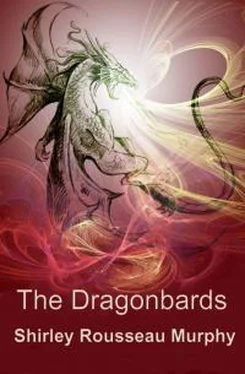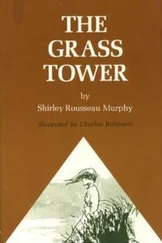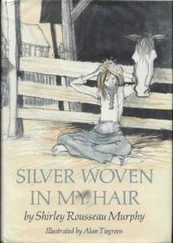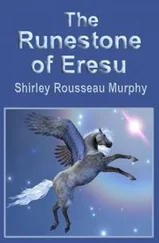Ширли Мерфи - The Dragonbards
Здесь есть возможность читать онлайн «Ширли Мерфи - The Dragonbards» весь текст электронной книги совершенно бесплатно (целиком полную версию без сокращений). В некоторых случаях можно слушать аудио, скачать через торрент в формате fb2 и присутствует краткое содержание. Издательство: Ad Stellae Books, Жанр: Фэнтези, на английском языке. Описание произведения, (предисловие) а так же отзывы посетителей доступны на портале библиотеки ЛибКат.
- Название:The Dragonbards
- Автор:
- Издательство:Ad Stellae Books
- Жанр:
- Год:неизвестен
- ISBN:нет данных
- Рейтинг книги:4 / 5. Голосов: 1
-
Избранное:Добавить в избранное
- Отзывы:
-
Ваша оценка:
- 80
- 1
- 2
- 3
- 4
- 5
The Dragonbards: краткое содержание, описание и аннотация
Предлагаем к чтению аннотацию, описание, краткое содержание или предисловие (зависит от того, что написал сам автор книги «The Dragonbards»). Если вы не нашли необходимую информацию о книге — напишите в комментариях, мы постараемся отыскать её.
The Dragonbards — читать онлайн бесплатно полную книгу (весь текст) целиком
Ниже представлен текст книги, разбитый по страницам. Система сохранения места последней прочитанной страницы, позволяет с удобством читать онлайн бесплатно книгу «The Dragonbards», без необходимости каждый раз заново искать на чём Вы остановились. Поставьте закладку, и сможете в любой момент перейти на страницу, на которой закончили чтение.
Интервал:
Закладка:
“Meriden is still the queen,” Teb said, coming to stand beside her. She took his hand. She could see a deep, irritable unrest in his eyes.
“She must have been happy here, Teb.”
“I’m afraid for her. I keep seeing her standing in the blackness of those far worlds.”
“Your mother is a brave warrior—a strong woman.”
“For nine years she’s been wandering among those worlds—among impossible terrors, impossible evil. Nine years, Kiri!”
“Maybe time is not the same there—not the same for her. And there must be good there, Teb, as well as evil. The light must have touched those worlds.”
His dark eyes searched hers.
“She is strong, Teb. You must not lose hope for her. She was strong enough to pull the vamvipers through.”
“What else does she plan? How can we help her? She—she will despise me, now, for calling the vamvipers to us.”
“Any of us could have—”
“Save me that. I’m tired of being told that anyone could have turned traitor. I’m the one who nearly killed us all. Not one among you would have done what I did.”
Kiri moved away and stood with her back to the stone wall, watching him. This was not the Tebriel she knew. She looked and looked at him, and he looked back, remorseful and defiant.
“You can’t do this to yourself,” she said softly. “You are caught in Quazelzeg’s thoughts—not your own thoughts.”
“That doesn’t make sense. Try to make sense, Kiri.”
“You are wallowing in self-pity!”
His eyes blazed with anger.
“Self-pity!” she shouted, losing control. “You are filled with it!”
“What do you know about self-pity? What do you know about being drugged and beaten? What do you—”
“ That’s self-pity! You are speaking Quazelzeg’s words!”
They stood facing each other, furious and hurting.
“Listen to me,” Kiri said evenly. “Maybe . . . maybe something positive has come from this.”
He started to speak, but she stopped him. “Just listen. If the vamvipers hadn’t found us, you would not have seen your mother. You wouldn’t know she’s alive.”
“That’s—”
“Listen! It took a terrible threat for your mother to reach out to you—for her to summon the power to reach out. Maybe . . . maybe the effort she made helped her. Maybe it increased the power she can command.”
He stared at her, a spark of hope touching him. Then he shook his head and turned away. She went to him and touched his cheek. He looked so uncertain and lonely, locked in his private darkness. She tried to keep her voice soft, to keep the anger out of it. “Quazelzeg wants to make you doubt, Teb. He wants to make you hate and turn away from us.”
He looked deeply at her, his eyes filled with resentment and anger—but with need for her. She put her arms around him, and suddenly he drew her close. Suddenly he let himself hold her tight, burying his face against her hair. They stood for a long time in the warm sunlight, saying nothing.
When the sun moved and put them in shadow, he stirred and held her away to look at her. “Maybe . . . maybe you’re right. Maybe I should listen more to where my anger comes from.”
“Just . . . just don’t turn away from us.”
“I want . . . suddenly I want to go down to Mama’s garden. It’s . . . where I remember her best.”
He led her out of the bright room and down a back way and out to a high wall. The gate in it was stuck or locked. He climbed it finally by the crossbars and opened it from inside.
It was the tangled, wild garden she had seen from the sky. Rosebushes and one giant flame tree grew up the walls, so thick she could hardly see the bricks.
There were small fruit trees let run wild, smothered in grass and flowers. A stone bench before the flame tree was grown over with low branches of its red blooms. Teb pushed them away and drew her down beside him.
He showed her Meriden sitting on the stone bench with the two small children—himself and Camery. The vision of Teb was fuzzy, a feeling more than a figure. He showed Meriden tucking him into bed, singing a strange little song to him, showed her holding court with their father, surrounded by officials. He made a vision of a family supper alone in the high chamber, and of court suppers in the great hall. He showed Meriden galloping her mare across the meadows playing tag with the children, laughing when their ponies caught her. Kiri felt undone by the visions, so private and warm, and important to him. Scenes tumbled one atop the other as the children grew older, until the morning they stood at the gate watching their mother ride away, not to return to them. When the last scene faded, Teb’s arms were around her. She held him, shaken with the loss that seven-year-old Teb had felt.
He put her away from him at last, and took Meriden’s diary from his pack. He leafed through it, and began to read to her from scattered passages. He read until the sun left the garden, and he had reached the last written page, with just one short entry at the top.
“ This is the last entry I will make. I am in the sunken city, and I leave the diary here. I will go through the Door now, into other worlds—to find the dragon,and to seek the source of the dark, and perhaps learn how to defeat it. I love you, my children. I love you, my dear king.”
As they stared at each other, Kiri knew the supple forming of his thoughts, felt feelings and images unfolding in a pattern that suddenly shocked her. Suddenly she knew the decision he had made—it struck across her mind sharply. She looked at him, terrified.
“I must go, Kiri. I must search for her—I’ve known that for a long time. She means to draw Quazelzeg to her through the Doors; she calls him to her. She . . . perhaps she cannot fight him alone.”
“But you must not go there alone. I—”
“ No! This I must do alone—not out of pride, believe me. Only one bard must go there. You—the rest—must remain . . . to battle Quazelzeg with all the strength you have among you. To . . . to battle for me, from this side.”
They held each other, their minds joined, the urgency of his commitment filling them. But her fear for him—and his own fear—blew like a dark curtain between them.
“Yes, I’m afraid,” he said softly. “But it’s time—to face Quazelzeg. I must do this, Kiri.”
When they drew apart, and he reached to close Meriden’s diary, his face went white. A new entry shone where, moments before, the page had been half blank.
It was in the same bold black stroke. It was Meriden’s writing.
The Castle of Doors is carved into the mountains of Aquervell. Now that I have come through, I know better the nature of the Doors and of the Castle. Some of the rooms are caves; some are built of stone. But they are without number, and each room has a Door leading to a world, and the worlds, too, are without number.
A vision filled their minds of mountains thrusting up scoured by fitful winds, and ridges snaking away broken by caverns and man-made bastions. The scene shifted and changed, disappearing beyond fogs and coming close and sharp as time shifted. Only the center held steady, a stone vortex of angled roofs and towers growing from mountain ridges. The image held them, the power of the Castle of Doors held them.
“Maybe only there,” Teb said, “lies the power to defeat Quazelzeg and the unliving.” They bent over the page together and read silently.
I sense the increasing power of the dark. And I feel the power of the Graven Light. I know both powers grow stronger, confronting each other with relentless and steady intent. If I can draw Quazelzeg here, away from Tirror, I think I can destroy him. I must try. My powers are stronger now.
Читать дальшеИнтервал:
Закладка:
Похожие книги на «The Dragonbards»
Представляем Вашему вниманию похожие книги на «The Dragonbards» списком для выбора. Мы отобрали схожую по названию и смыслу литературу в надежде предоставить читателям больше вариантов отыскать новые, интересные, ещё непрочитанные произведения.
Обсуждение, отзывы о книге «The Dragonbards» и просто собственные мнения читателей. Оставьте ваши комментарии, напишите, что Вы думаете о произведении, его смысле или главных героях. Укажите что конкретно понравилось, а что нет, и почему Вы так считаете.










![Ширли Мерфи - The Shattered Stone [calibre]](/books/436059/shirli-merfi-the-shattered-stone-calibre-thumb.webp)

